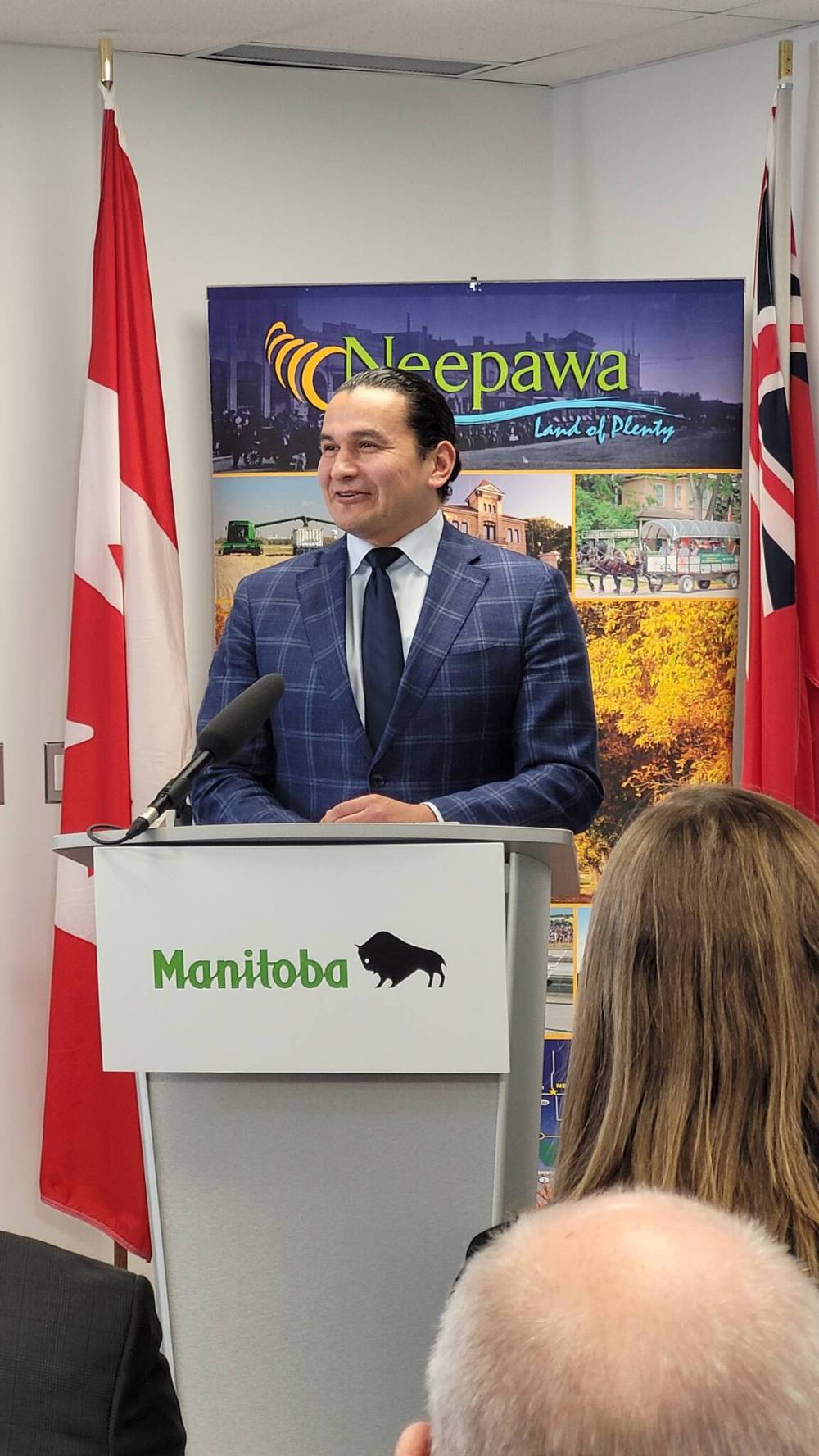Regaining nurses’ trust tough task for Kinew
Advertisement
Read this article for free:
or
Already have an account? Log in here »
To continue reading, please subscribe:
Monthly Digital Subscription
$0 for the first 4 weeks*
- Enjoy unlimited reading on winnipegfreepress.com
- Read the E-Edition, our digital replica newspaper
- Access News Break, our award-winning app
- Play interactive puzzles
*No charge for 4 weeks then price increases to the regular rate of $19.00 plus GST every four weeks. Offer available to new and qualified returning subscribers only. Cancel any time.
Monthly Digital Subscription
$4.75/week*
- Enjoy unlimited reading on winnipegfreepress.com
- Read the E-Edition, our digital replica newspaper
- Access News Break, our award-winning app
- Play interactive puzzles
*Billed as $19 plus GST every four weeks. Cancel any time.
To continue reading, please subscribe:
Add Free Press access to your Brandon Sun subscription for only an additional
$1 for the first 4 weeks*
*Your next subscription payment will increase by $1.00 and you will be charged $16.99 plus GST for four weeks. After four weeks, your payment will increase to $23.99 plus GST every four weeks.
Read unlimited articles for free today:
or
Already have an account? Log in here »
Hey there, time traveller!
This article was published 24/05/2024 (565 days ago), so information in it may no longer be current.
Manitoba’s New Democratic Party was elected last fall largely on the strength of its promise to heal the ailing health-care system.
Whether the government of Premier Wab Kinew is making meaningful progress in this daunting endeavour is, and will remain, the subject of ongoing conversation. This much, however, seems clear: in the eyes of many who work on the front lines of health care, not nearly enough has been done.
Late last week, the Manitoba Nurses Union announced the results of its membership’s ratification vote on the tentative contract agreement that had been reached between union negotiators and the province. The numbers make clear the feelings of public-sector nurses on the current state of their working lives: the tentative deal was approved by the overall membership across six health regions by the slimmest of margins, with almost 49 per cent voting to reject it.

Brandon Sun files
Premier Wab Kinew
More significantly, in the Shared Health region — whose membership is largely comprised of nurses employed at Winnipeg’s Health Sciences Centre — the deal was rather firmly rejected, with almost 57 per cent voting against it and only 43 per cent in support.
The Shared Health group’s spurning of the tentative contract — which the union touted as having been reached “in record time,” and for which the premier delivered an in-person message of gratitude at the union’s annual general meeting on May 7 — is indicative of the depth of discontentment that remains at HSC, where concerns persist about safety, understaffing, mandatory overtime and a widening gap between full-time and part-time staff.
“There’s a clear message there to government and employers that health care is not good anywhere in this province,” union president Darlene Jackson said last weekend.
What, then, are the necessary next steps for the province, and for the health-care sector that is struggling to recruit and retain nurses in numbers sufficient to somehow lift the system out of its current state of perpetual crisis?
There’s no question relations have improved between the province and those who toil in various levels of the health-care system. The mere fact the nurses’ union was able to meet amicably with the province and arrive at a tentative deal represents a major culture shift; remember, the previous seven-year contract (which expired March 31) covered four years in which nurses worked without a collective agreement, after the Pallister government imposed a public-service wage freeze and flatly refused to engage in contract negotiations.
At the same time, the province embarked on a massive overhaul of the health system that included no consultation with front-line workers — nurses in particular — whose careers and lives were left in disarray by the changes. Overwhelmed and disillusioned, many chose to curtail their hours, retire or leave public practice in favour of private-agency nursing.
Comparatively speaking, reaching a tentative agreement within six weeks of the previous deal’s expiry would fairly deserve a “record time” description.
The proposed contract includes wage increases, bonuses for weekend shifts and working in remote locales, and other general improvements. But it will clearly take more than standard-issue collective bargaining enhancements to regain the trust and revive the career enthusiasm of nurses who have for too long felt disrespected, underappreciated and generally ignored.
The premier’s closed-door conciliatory gesture at the nurses’ annual meeting (“I had a message of gratitude and thanks for the nurses who’ve been stepping up so many times and who’ve gone above and beyond,” he told the Free Press) was no doubt appreciated by those in attendance.
Telling them was the easy part. Showing them remains the more challenging task at hand.





